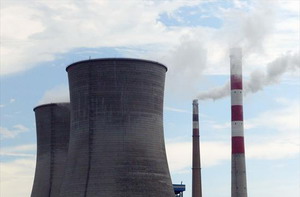Profit and strain for China banks
Updated: 2011-08-26 11:08
By LINGLING WEI and Eliot Gao (Wall Street Journal)
|
|||||||||||
BEIJING - China's big banks reported hefty profits in the first half of this year, but signs of strain are showing from their massive lending binges and as they struggle to meet tougher capital requirements, the Wall Street Journal reported.
Profits of the nation's five biggest banks by assets, led by Industrial & Commercial Bank of China Ltd, were buoyed in part by a greater focus on business that generates fee income, such as credit cards and wealth-management products.
The shift comes amid China's efforts to rein in bank lending as it fights inflation that resulted from a surge in credit used to stimulate the economy during the global financial crisis.
Chinese banks are increasingly looking to pump up their capital base, mostly by selling debt, in the face of a push to raise regulatory requirements. At the same time, they face increased concerns about potentially problematic loans tied to real estate and government projects. Some Chinese lenders recently acknowledged a bigger exposure to local-government debt used for infrastructure projects than they previously disclosed.
Investors are particularly concerned about bank loans to local governments to build highways and other infrastructure projects, estimated to be as much as 14.38 trillion yuan ($2.25 trillion), or a third of all outstanding loans in the country as of the end of last year. Big State-owned banks gave many of those loans and often accepted land as collateral.
However, many analysts don't expect China to suffer a banking crisis as was seen in the US and Europe, largely thanks to its still-robust—albeit slowing—economic growth. Zhu Chaoping, head of research at ChinaScope Financial, estimates that China's economic growth will weaken from 10.3 percent last year to 9.4 percent this year and 9 percent in 2011. "This growth rate will provide support to the banking industry," he said.
To cope with the two-pronged capital squeeze, China's publicly traded banks already have raised 594.7 billion yuan ($93 billion) from the sale of stocks and bonds since July 1, 2010, according to ChinaScope, a market-research firm in Hong Kong. More fund-raising plans are in the offing.
China Construction Bank Corp, for instance, said it plans to raise 80 billion yuan through a debt offering. Its chairman, Guo Shuqing, said the bank expects to sell much of that debt in Hong Kong to take advantage of the low funding costs enabled by rising demand for yuan-linked assets offshore.
Bank of Communications Co recently halted interim dividends to retain capital, sparking fears among investors that others would follow suit. The bank isn't considered one of the Big Four; it ranks fifth based on assets.
Executives at both Bank of China and Bank of Communications stressed that they have no equity-financing plans in the near term, which analysts attributed to their worry about any potential pressure that a share sale could have on their already depressed stock prices.
Thursday, ICBC Chairman Jiang Jianqing said his bank can issue 100 billion yuan worth of debt in the future to replenish capital. Mr Jiang said the bank sees such debt issuance as a "cost effective" way to boost its capital base, but added that the actual size of any debt offering will depend on the bank's future capital needs.
ICBC reported first-half net profit rose 29 percent to 109.48 billion yuan. It set aside 16.9 billion yuan in funds against loan losses, up 74 percent from a year earlier.
Agricultural Bank of China Ltd, the country's No 4 lender by assets, on Thursday posted a 45 percent increase in six-month profit to 66.67 billion yuan. Zhang Yun, AgBank's president, told reporters that the bank has got regulatory approval to sell yuan-denominated debt offshore this year, though he didn't elaborate.
In a separate squeeze on banks, Chinese regulators are demanding that banks increase the percentage of capital that they hold as a financial cushion. They are taking their cue from international banking watchdogs that tightened capital rules for the world's largest banks this summer in an effort to make the banking system less susceptible to a crisis.
To meet the new capital requirements, large Chinese banks that are considered "systemically important," or too big to fail, will need to raise up to 500 billion yuan in additional capital in the next five years, Wu Xiaoling, a former deputy governor at the People's Bank of China, said at a bankers forum in Beijing on Saturday.
The potential capital shortfall is a major factor pushing down Chinese bank stocks.
Bank of China's profit for the first six months jumped 28 percent to a record 66.5 billion yuan, but it set aside 134.6 billion yuan in provisions for bad loans, more than the 122.9 billion yuan it set aside for the whole of 2010. New capital rules will have a "relatively small" impact on the bank's capital-adequacy ratio but will affect the bank's ability to lend somewhat, its president, Li Lihui, told reporters on Wednesday.
Its Hong Kong-listed shares have plunged 26 percent so far this year, making it the worst performer among major Chinese banks listed there. Its yuan-denominated Shanghai shares are down 6.5 percent.
Related Stories
'Limited impact' on banks from property bubble 2011-06-29 07:24
Regulator asks banks to cut loans to developers 2011-06-24 14:56
Foreign banks 'confident' about Chinese market 2011-06-23 10:41
Banks may see revenue drop 2011-06-09 10:27
- CNOOC cuts output estimates
- Greater US investment encouraged
- International carriers targeting smaller cities
- China Unicom Q2 profit outstrips analyst estimates
- Jobs' quit will provide more opportunities for ZTE
- CNR Corp posts 145% jump in H1 net profit
- China raises funding to boost grain security
- China's rail firms post shrinking profits













